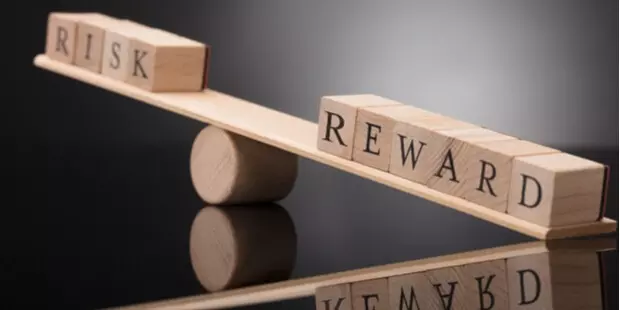Should I check or raise? Is it better for me to stay true to my cards or bluff? Every decision you make as you play online poker is affected by one main thing: how much risk you're willing to take.
Risk is an inseparable part of poker, as you can't control which cards you get, which hand your opponents are dealt, and how they react. But if you learn how to deal with those unknown factors and you can figure out what risks are worth taking, you might be able to increase your wins exponentially.
Now is your chance to learn what is the right way to take risks in poker, how it concerns rake poker info and more important tools that might improve your poker skills!
How Taking Risks Affects Your Brain
At first glance, risk-taking might seem like a random and careless act you perform based on a gut feeling. But in reality, taking risks is highly complex, involving some intricate biological processes.
According to studies, two parts of your brain influence your inclination to take risks: the prefrontal cortex and the amygdala. Apparently, the more those two are connected, the greater the tolerance for risk a poker player will have. That means that if certain areas of your brain are highly active, the levels of risk people are willing to take are much higher.
So, technically speaking, your risk-taking tendencies are affected by the way your brain functions. But this connection works both ways, as the more risk you take, the more your brain reacts to it!
The more you take risks, the more dopamine your brain releases, which is a neurotransmitter that makes you feel satisfaction and happiness, creating a natural high. And when you're rewarded with all those positive feelings, it teaches the brain that taking risks is good, and you're bound to want to take even bigger risks in the future.
How to Get Better at Taking Risks
The enjoyment you might feel from placing bets can make you fall into a dangerous trap: risk-taking that leads to a win might encourage you to make bolder moves and take even more risks. That can turn out to be extremely perilous if you don't back up your risk-taking with solid data.
Here are a few tips that can help you manage your decision-making while you take risks:
- Understand how much money is involved – The first step towards making smart - yet risky - decisions is to make sure you know what type of cash is involved. Take a look at the stakes, the poker rake, and the average size of the pot before you decide whether taking a risk is worth your while. Sometimes, you'll sit at the table with much bigger fish, and the risk levels involved might be out of your league.
- Make sure you have enough poker chips left – If you take too many risks straight off the bat and you're left with a small number of chips, you should be careful. That is when poker players are more prone to taking unnecessary risks, as other players might peg you as desperate and they won't fall for your bluffs.
- It's all about your attitude – To take risks, you need to be in the right mindset: you can't be too eager or too excited, as it will cloud your judgment. You also can't be too passive when placing bets, or else you will lose your momentum, therefore your risks might not pay off. So, when you decide you're ready to raise the risk levels up a notch, be aggressive and calm, and make sure you're able to think things through at all times.
- Place more bets – Sometimes, taking risks might be scary, as you never know what the outcome of your actions will be. To overcome this fear, you have to place more real money bets and get used to taking risks on a small scale.
In Conclusion
Taking risks while playing online poker is fun, unexpected, and somewhat scary. To get better at taking risks, you need to understand how to be in control of your actions, even if there is no guarantee your moves will work.

